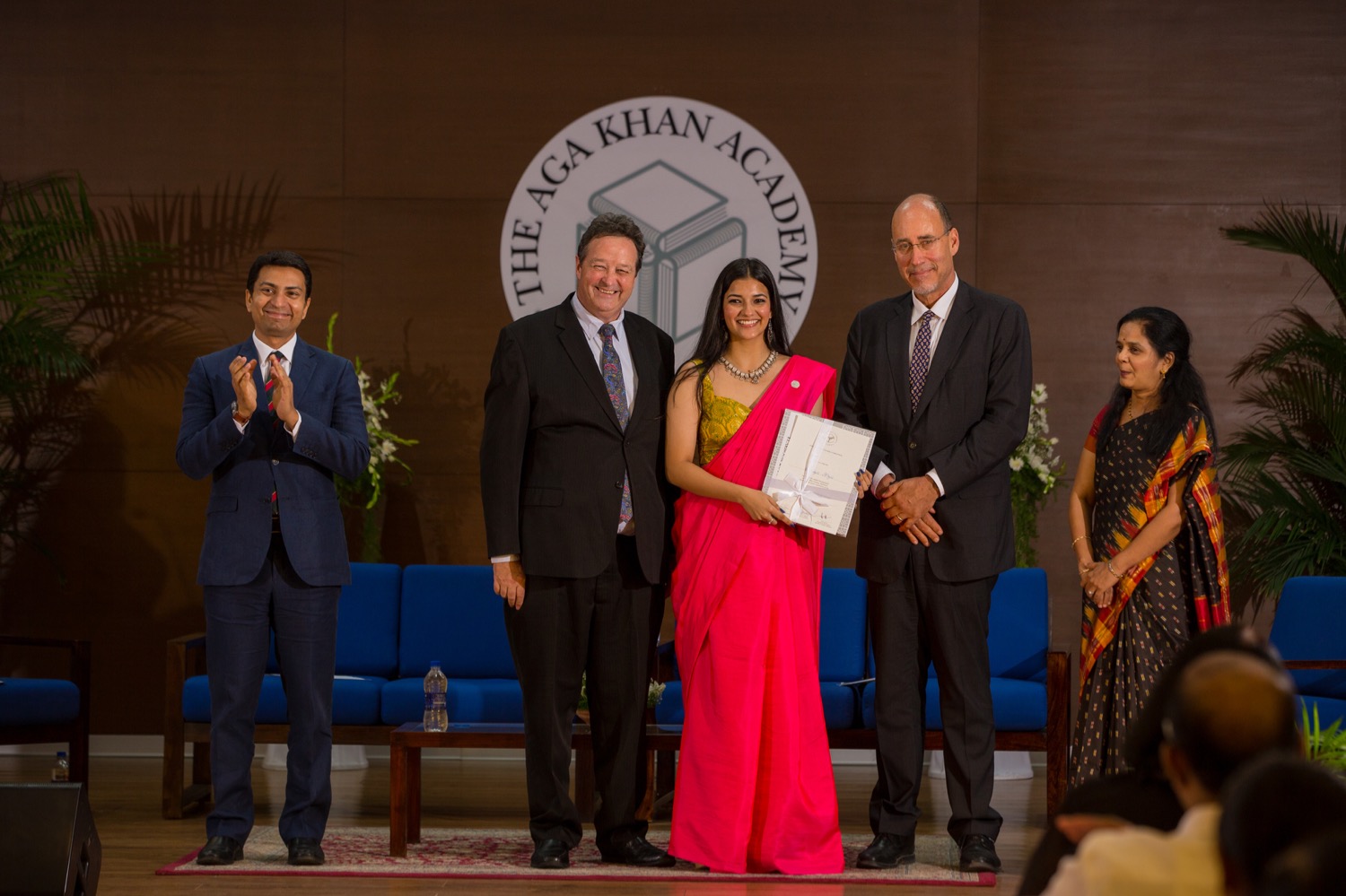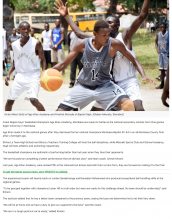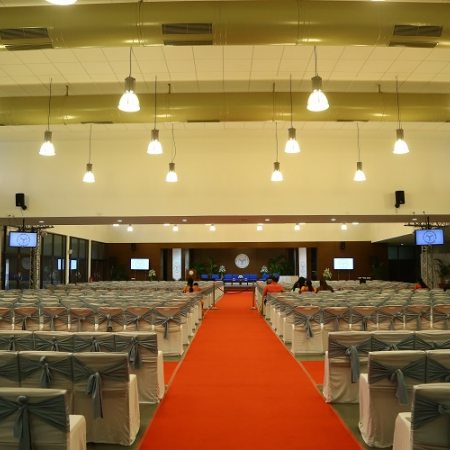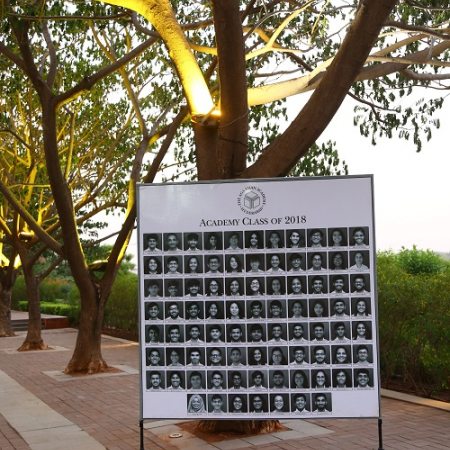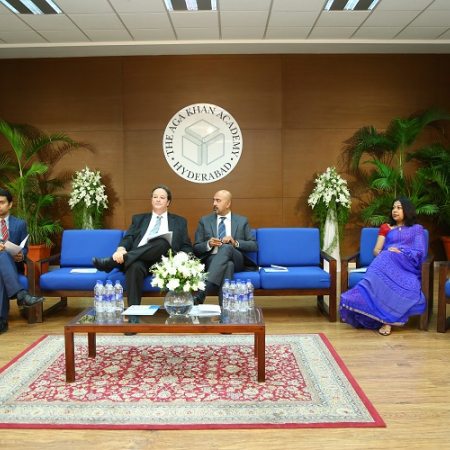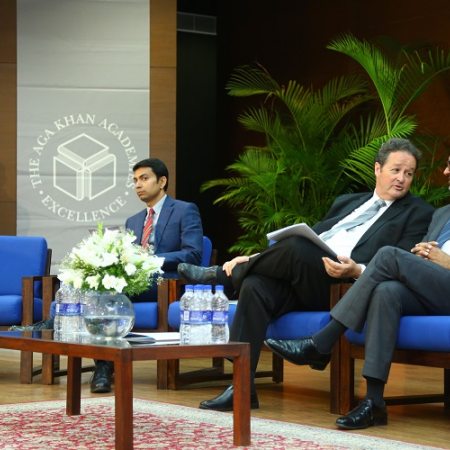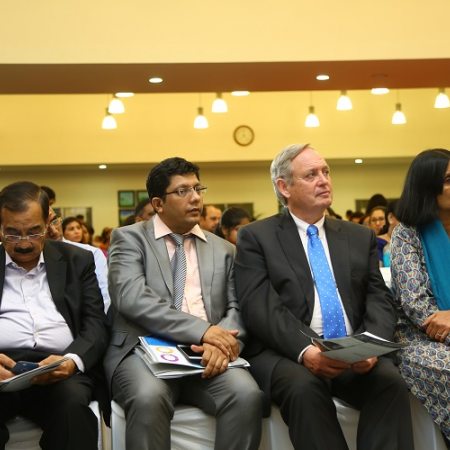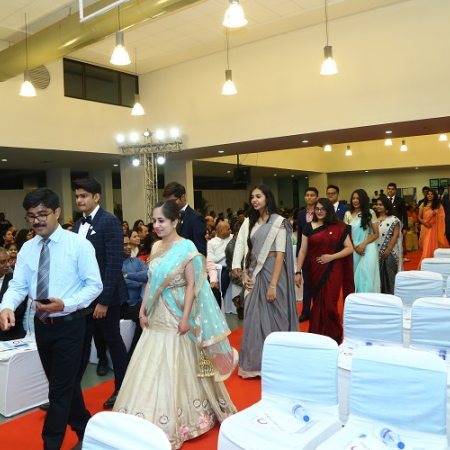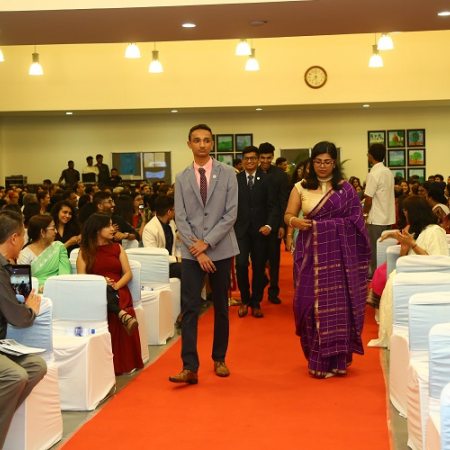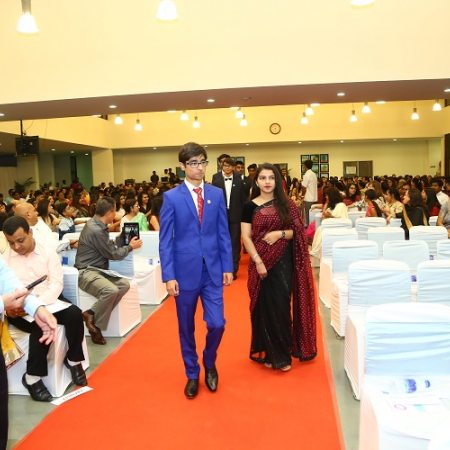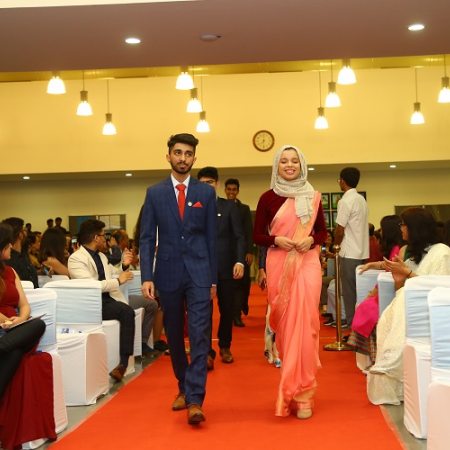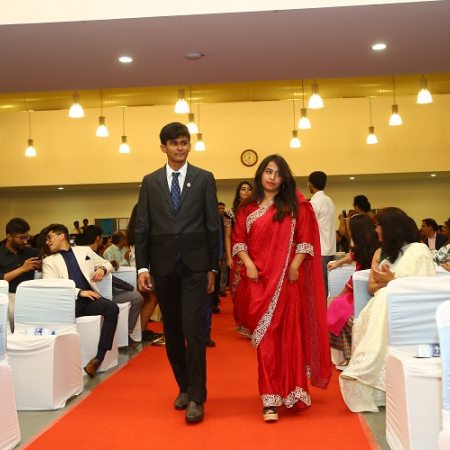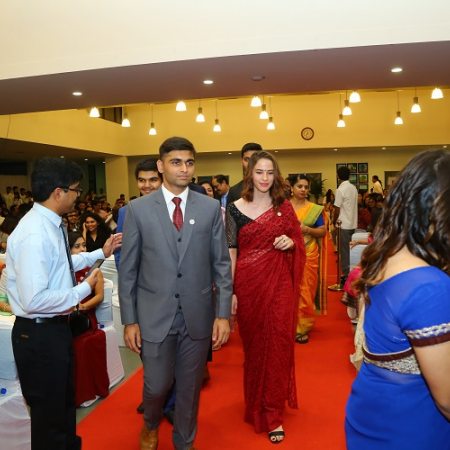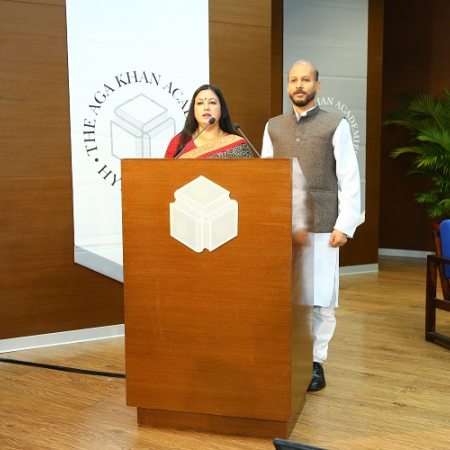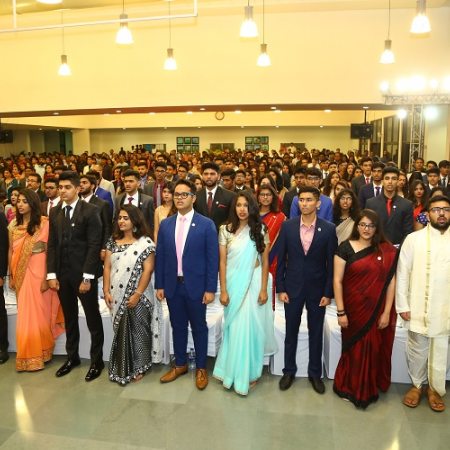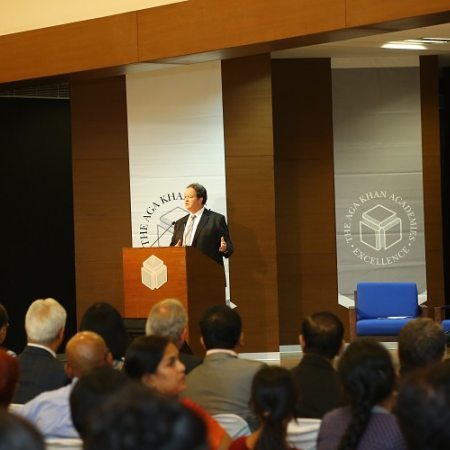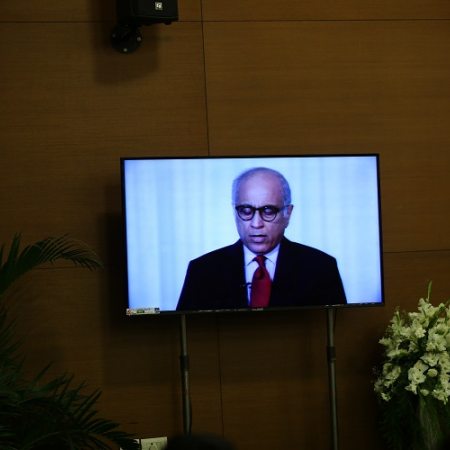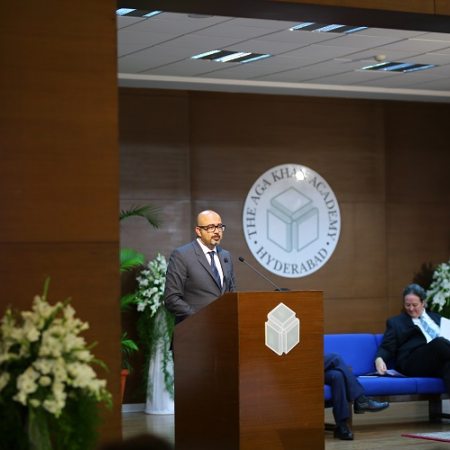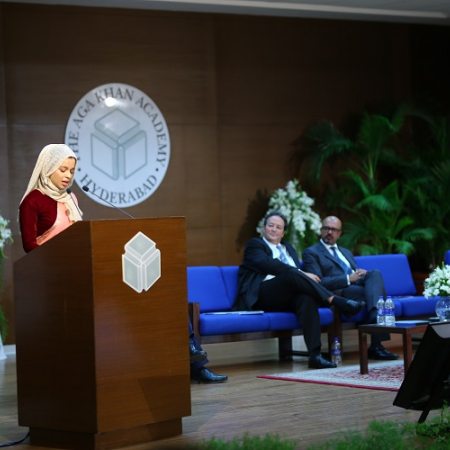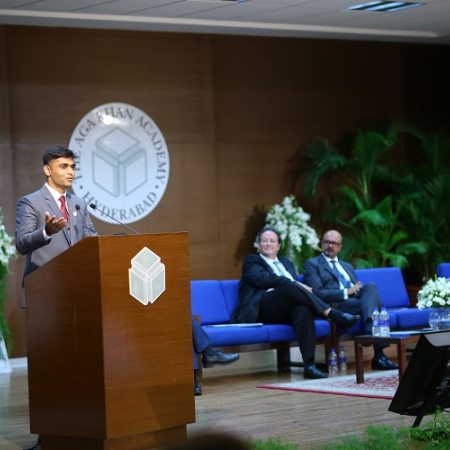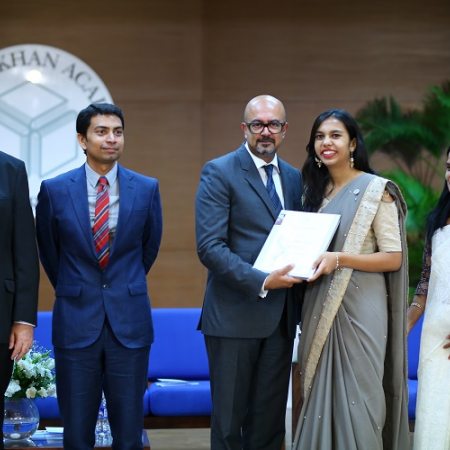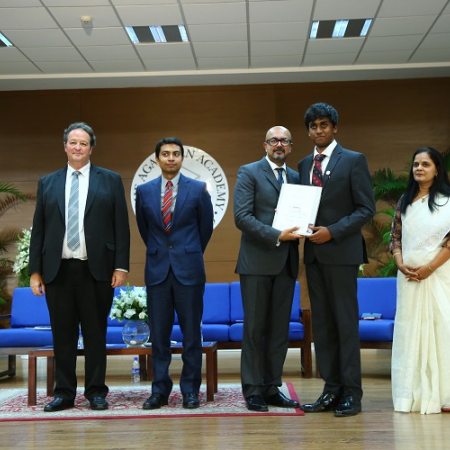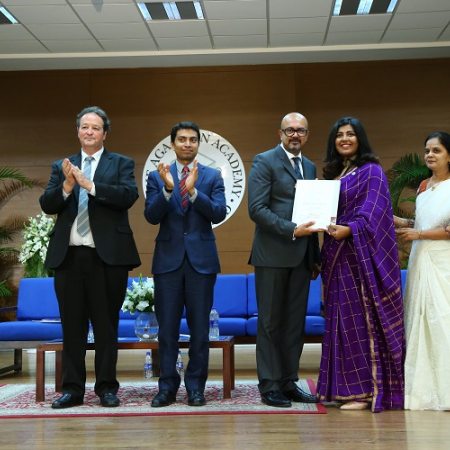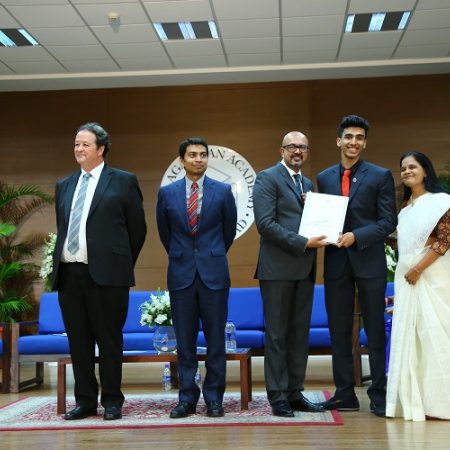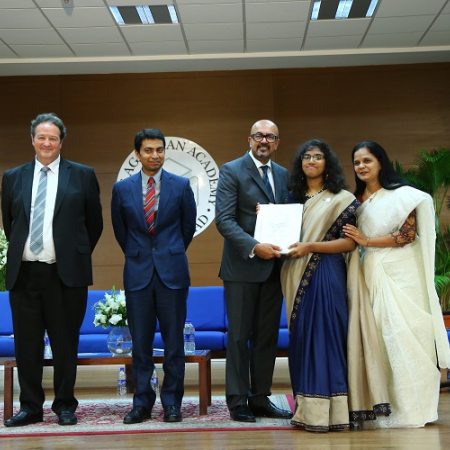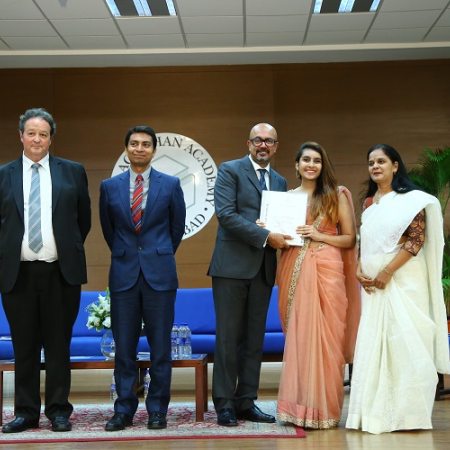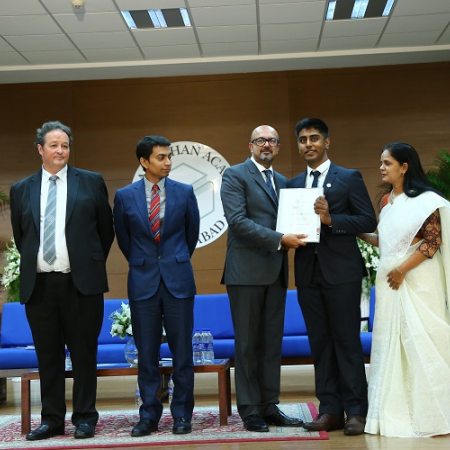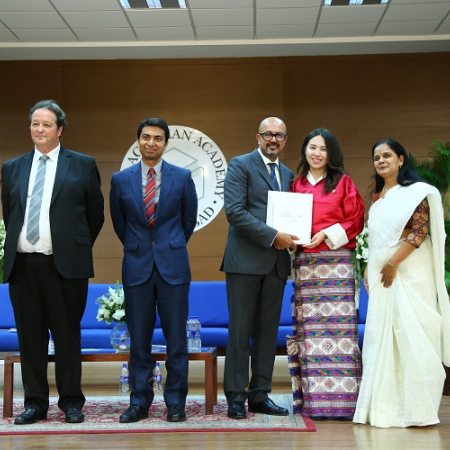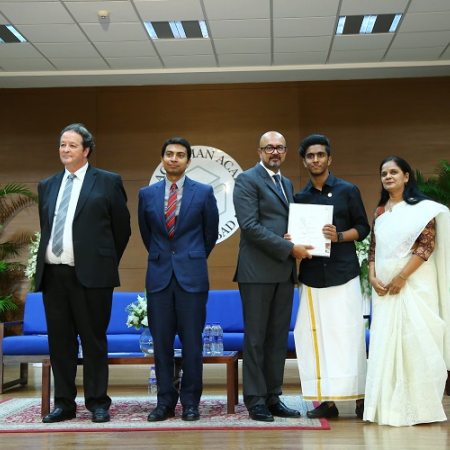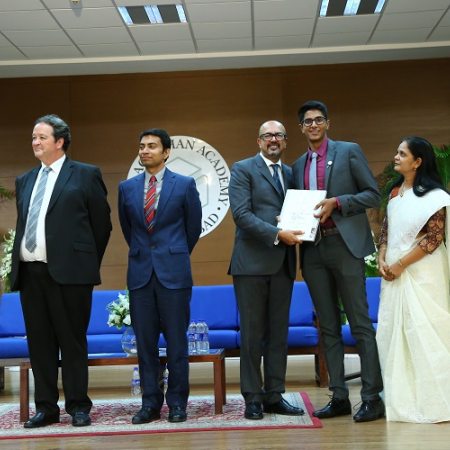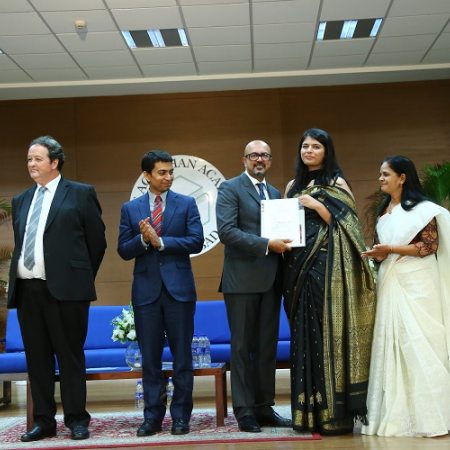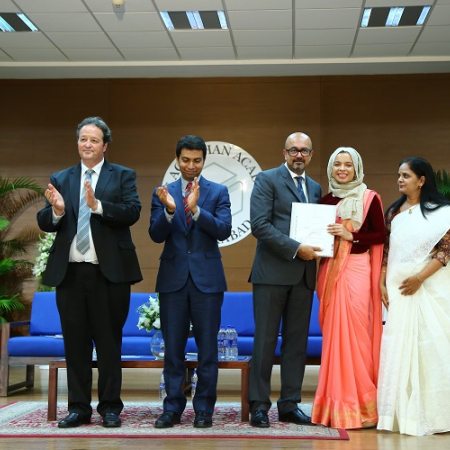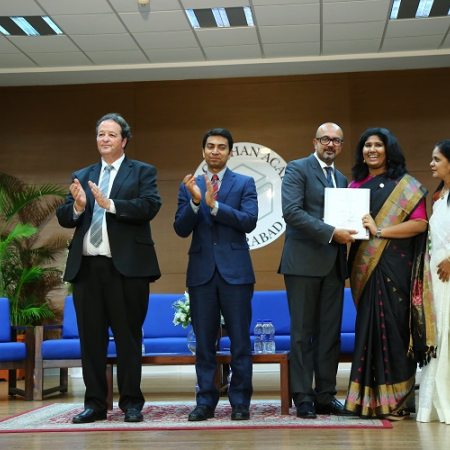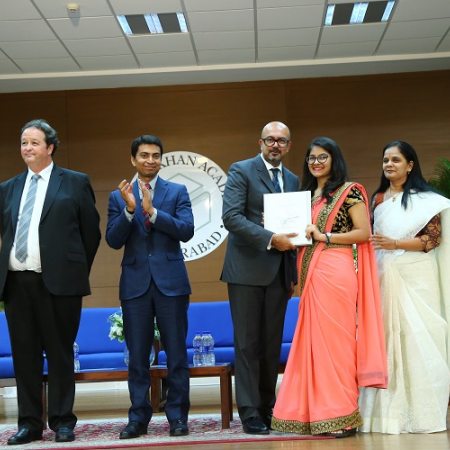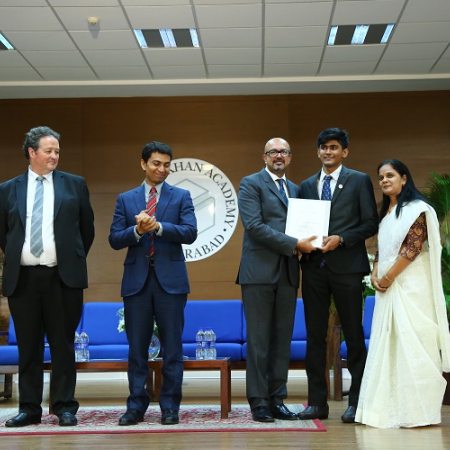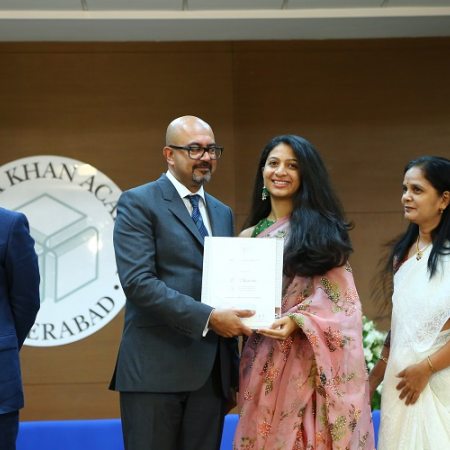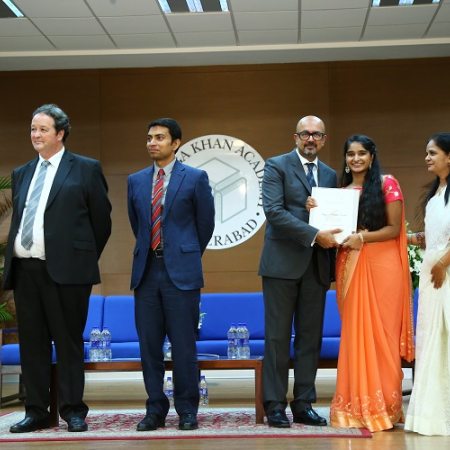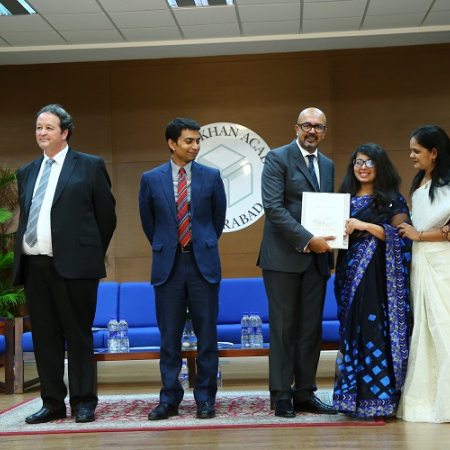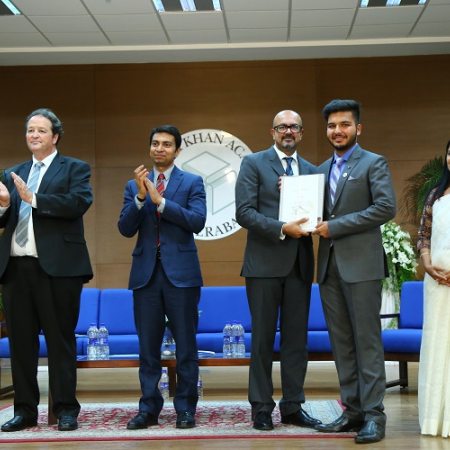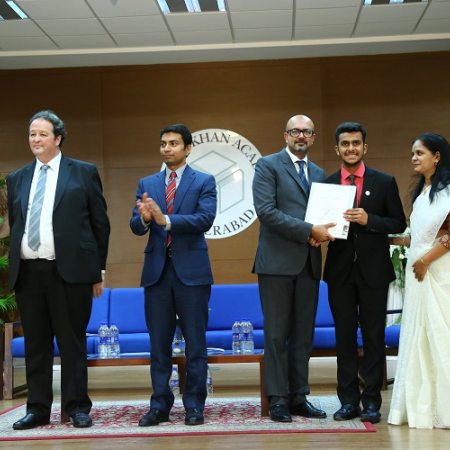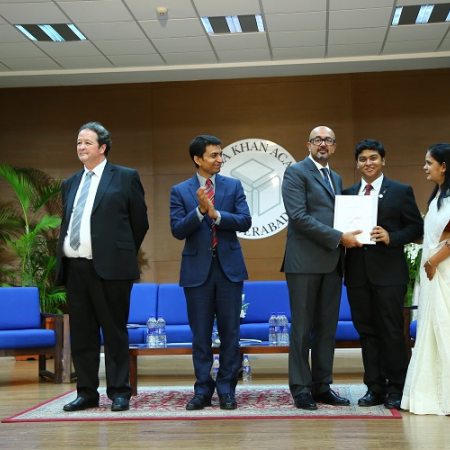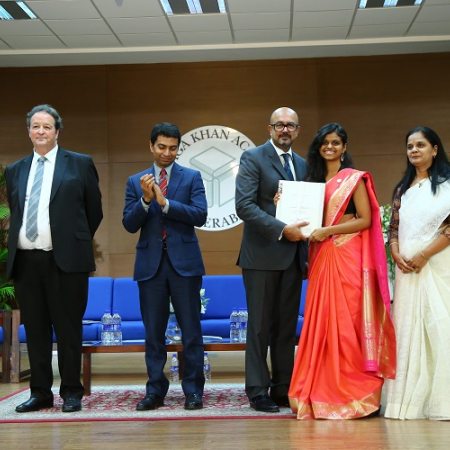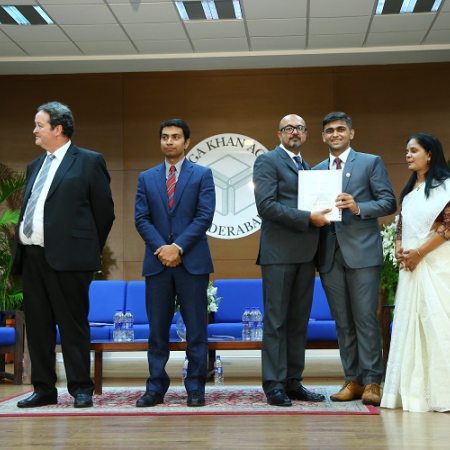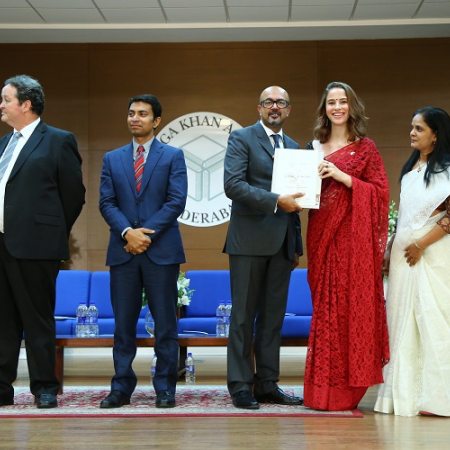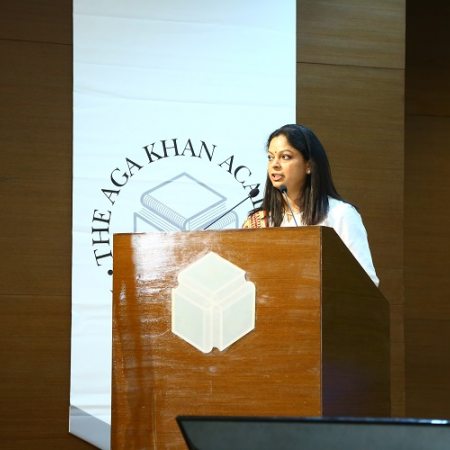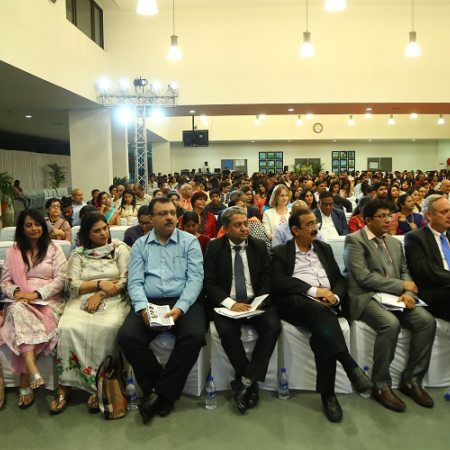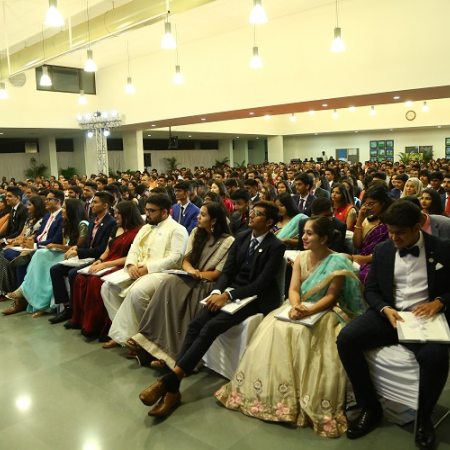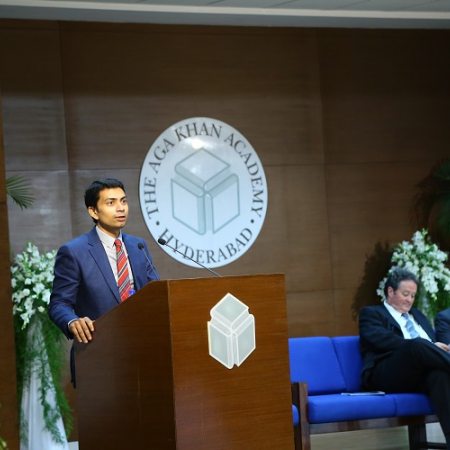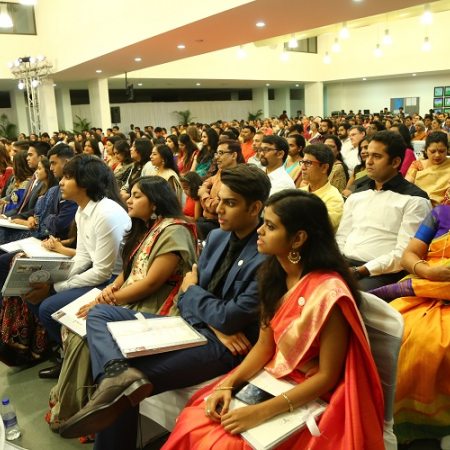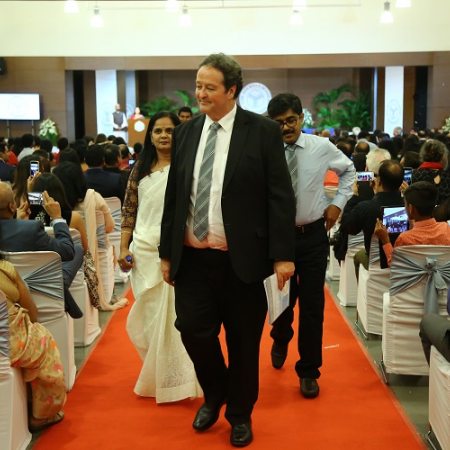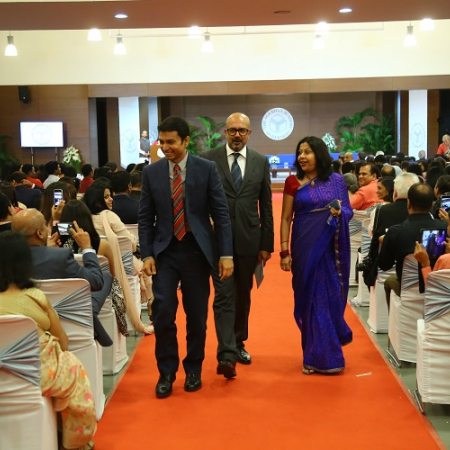Naheed Bardai's closing remarks at AKA, Mombasa's Class of 2015 graduation
The Cabinet Secretary of Education for Mombasa County, Mr. Tendai, Dr. Bentil, Mr. Bhatia, Mr. Otieno, Graduates, Parents, faculty and invited guests, thank you for taking the time to grace this occasion.
Dr. Bentil, thank you for your inspirational words and guidance, especially towards our graduates.
Joshua, thank you for your insights into the operations of our graduating class, including the things we didn’t – and I’m not sure I really wanted to know!
It is now my pleasure to present the The Aga Khan Academy Award of Excellence. The Aga Khan Academy Award of Excellence is given to the most outstanding male and female student in DP2 each year. This award is given to the top overall male and female contributors to academics and student life, and who best exhibit the AKA Learner Profile upon graduation in DP2. The award considers students’ achievements and contributions in DP1 and DP2. I will start with the female recipient.
Courageous, charismatic and pluralistic, the female recipient of the Award is a role model student. Academically, she is an inquirer with an insatiable thirst for knowledge. With a community-driven outlook and approach, she has managed to find the right balance in pursuing activities that benefit the community while also enabling her to grow. As an accomplished scientist, she earned a gold medal in an international science competition presenting her innovative low-cost water purifier that she carried through from her MYP Personal Project. As a celebrated artist, she has organized dance recitals and written and acted in her own play. Having recently suffered from a difficult illness prior to and during the examination session, she demonstrated the heart and resilience of a true leader. Next year, she will be pursuing her passion in Theatre at New York University in New York on a full tuition scholarship. Please join me in congratulating this year’s female recipient of the Aga Khan Academy Award of Excellence, Karishma Bhagani.
Passionate, socially conscious, and scholarly, the male recipient of the Award is one of the most inspiring students I have had the pleasure of working with. The owner of a true growth mindset, he is never satisfied with the status quo and is always looking to better himself in every way. His deeply held belief in equity and social justice manifest itself in all that he does. Coming from modest means and part of our Talent Identification programme, his humble and unassuming style makes him approachable and an inspiration to all, making us believe that one can overcome life’s obstacles. In many ways, this young man has been the maker of his own destiny. A dedicated researcher and scientist, this student completed his Extended Essay in World Studies looking at the relationship between agricultural productivity and household income in his local community. In addition, he placed third in an international science competition for his work in creating a generator that could produce 50 watts of clean energy using magnets. A former Student Representative Council executive member and current Dorm Captain, he has been a big brother to many. Receiving a full Mastercard Scholarship to study engineering at the University of Toronto, please join me in congratulating this year’s male recipient of the Aga Khan Academy Award of Excellence, Maxwin Ojwang.
Graduates, you have just conquered one of the most important rites of passage – sitting for two hours without sending a tweet, making a comment on Facebook or posting a picture on Instagram. Parents, this is clearly evidence that your sons and daughters are capable of unplugging while at home over their much deserved break. Graduates, you will soon have the chance to get caught up on all of your favourite series, play video games until your fingers fall off, and watch viral videos of strange animals doing strange things. You deserve this break, just as you deserve this ceremony in your honour. Just yesterday, these graduates surmounted a real milestone – their IB examinations. Graduates, I have seen you study harder than any other cohort I have known; I have seen you band together as colleagues and friends to support one-another in times of need; I have seen the joy on your face when you open that exam script and see the exact question you were hoping for; I have seen you curse those exact same exam papers; and as a class, I have seen you consume the most amount of coffee and sugar of any graduating class. Graduates, this is one of many rites of passage that you will undergo in your life. And as you go off to be a leading economist or entrepreneur who helps to find a way to bridge the poverty gap or solves Greece’s economic crisis, or that innovative scientist or engineer who finds a solution to our most pressing health or energy concerns, or that artist who helps us to reflect on our own identity, or that politician striving to create a more inclusive society – be humble and be brave. Be humble and be brave.
The greatest challenge that I believe you will face is not writing that university exam, getting that dream job, or finding a partner – the greatest challenge you will face will be challenges that test your moral compass – that test your integrity – that test your character. Will you have the capacity to forgive even when someone has let you down or stabbed you in the back? Can you have the patience and intellectual humility to invite multiple points of view, even if they disagree with your own? Will you be a good parent to your child? Will you be a good son or daughter to your parents?
To make matters even more complex in the challenges to your character is our ability to operate ‘in cognito’ online. We can do things through an email, text, tweet or photo that will self-destruct in 5 seconds that we would never dream of doing in person. While this relatively new way of relating to one-another has tremendous potential, we cannot hide behind the anonymity afforded to us so easily through technology, holding ourselves to different ethical standards.
That being said, if the last six years that I have had the privilege of working with many of you are anything to go by, I know that your moral compass is strong. Having spent a significant amount of time with all of you, I trust that the future of our communities and countries are in very capable hands.
Ladies and Gentlemen, these graduates are stars and are outstanding in so many ways. 9 of them helped to form our first Year 1 class in 2003, and many more have joined along the way. This cohort formed our first residential group in 2009, and marked the beginning of our robust Talent Identification and Financial Aid programmes. These graduates were the first to go through our mentorship and leadership programmes in 2011, and formed our largest ever Diploma class in 2013. Your combination of intellectual fervour, pursuit of social justice, excellence in athletics, creativity in the arts and inspirational leadership has left an undeniable mark on this school. Indeed, your success is all of our success, and other than your parents, there is nobody more proud of your accomplishments than your teachers. From the PYP to MYP and DP, these inspiring educators have helped to nurture your creativity, sharpen your critical thinking, develop your passions, and hone your moral compass. Graduates, please join me in thanking all of your teachers. I would like to thank all of those who have helped along the way – the nurses, kitchen staff, IT department, maintenance teams, drivers, admin staff and librarians. Without you, none of this would be possible.
To conclude, I would like to quote His Highness The Aga Khan from a recent speech he made in Nairobi at the Aga Khan University graduation. He said, “This is not a Farewell Ceremony. In fact, an event like this is often called a “Commencement”, since it marks the beginning of so many great new stories. We hope that you too will share your stories with us, in the days ahead.” On that same note, I would like to acknowledge and thank our many alumni who have joined us today for this ceremony.
Once again graduates, we wish you well and congratulations. Thank you.
Graduation 2018
The Aga Khan Academies celebrated the graduation of 160 students from the Academies in Mombasa, Kenya and Hyderabad, India on Saturday, 19 May 2018. The Class of 2018 included 76 students from the Aga Khan Academy Mombasa and 84 students from the Aga Khan Academy Hyderabad, many of whom will be going on to higher education at leading universities worldwide.
Foundation stone-laying ceremony of the residential campus, Aga Khan Academy Mombasa
Residential campus foundation stone-laying ceremony Aga Khan Academy Mombasa
Keynote speech by Mr Jan Mohamed at the graduation ceremony at the Aga Khan Academy Mombasa
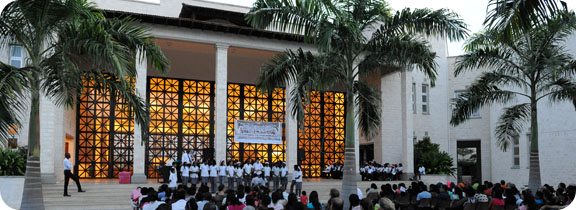
History
In 2000, His Highness the Aga Khan initiated the establishment of the Aga Khan Academies, an integrated network of schools dedicated to expanding access to the highest standard of education.
The Aga Khan Academies is an agency of the Aga Khan Development Network (AKDN), which is chaired by His Highness the Aga Khan. The AKDN has a long history of involvement in education in countries of the developing world, with the first schools now under the AKDN umbrella having been founded in 1905 in India and Zanzibar. Currently, AKDN agencies operate more than 240 schools and educational programmes ranging from early childhood through to post-graduate education.
Establishment of the academies
In 2003, the first of Aga Khan Academy opened in Kenya on an 18-acre site in the Kizingo area of Mombasa. The Aga Khan Academy (AKA) Mombasa has already established a highly successful track record, with its students placing among the top tier worldwide in academic performance.
The Aga Khan Academy Hyderabad is the second to be established and opened with its first intake of students in August 2011. As with all the Aga Khan Academies, AKA Hyderabad selects students of all socio-economic backgrounds who show promise in academic and other areas, and who demonstrate good character and serious intent.
A third Aga Khan Academy, in Maputo, Mozambique, opened in August 2013 with its lower primary school. In 2022, the Aga Khan Academy Dhaka in Bangladesh opened.
Future academies
The other Academies are at different stages in the planning and development process.
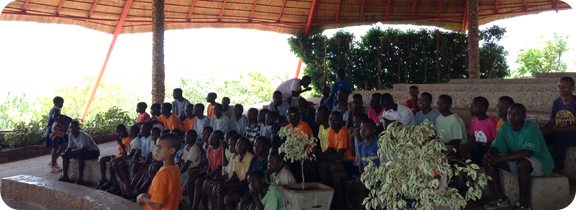
Community Service
Community service is an overarching and major facet of student education and experience at the Academies. Incorporated into student life and the curriculum, community service extends the educational experience beyond the classroom, informing students of the real-world implications of their studies. Through community projects with local organisations and groups, students gain a sense of the interconnectedness of their education with the world around them.
Students can participate in a variety of structured community initiatives and internships to learn about their place in the world.
By partnering with local Aga Khan Development Network agencies, students learn first-hand about the operations of an organisation and work towards making tangible contributions to the agencies.
In addition, community engagement provides an understanding of broad concepts such as human rights, dignity and autonomy, while emphasising the ethos of leaving the world a better place.
Examples of service projects from the Aga Khan Academy Mombasa:
Coast Rural Support Programme: Tree planting at Mtaa community reservoir. The reservoir was created as a community project. The outreach project involved planting 700 indigenous seedlings around the reservoir.
East African Quality in Early Learning: Creation of the Fun Reading Day initiative to promote early grade reading. Inspired by the common 1:10 ratio of students to books in local public primary schools, the first project was to collect books to establish a library at Ng’ombeni Primary School. Through a book drive and other community projects, students collected books and catalogued and prepared them for library use.
Our Junior School and Diploma Programme (DP) students visited the Ng’ombeni Primary School for group reading sessions. This project was then handed over to upcoming DP students to continue.
Education for Marginalised Children in Kenya (EMACK): Student’s council training workshop at Longo Primary School. Sarrah Sheikh came to know the Longo Primary School through her summer placement service. She went on to assist EMACK in establishing student leadership bodies, beginning with Longo Primary School. Topics covered went from effective leadership to communication tools, and the difference between prefects and elected student leaders. Three weeks after this project, the Kenyan government announced the phasing out of the prefect system and the introduction of elected student councils.
Madrasa Resource Centre: School painting project at Mpirani Nursery School. After visiting a school in disrepair, the DP students decided that a bright place was needed for the students to learn. They mobilised their fellow students to create bright learning materials and to repaint the school.
